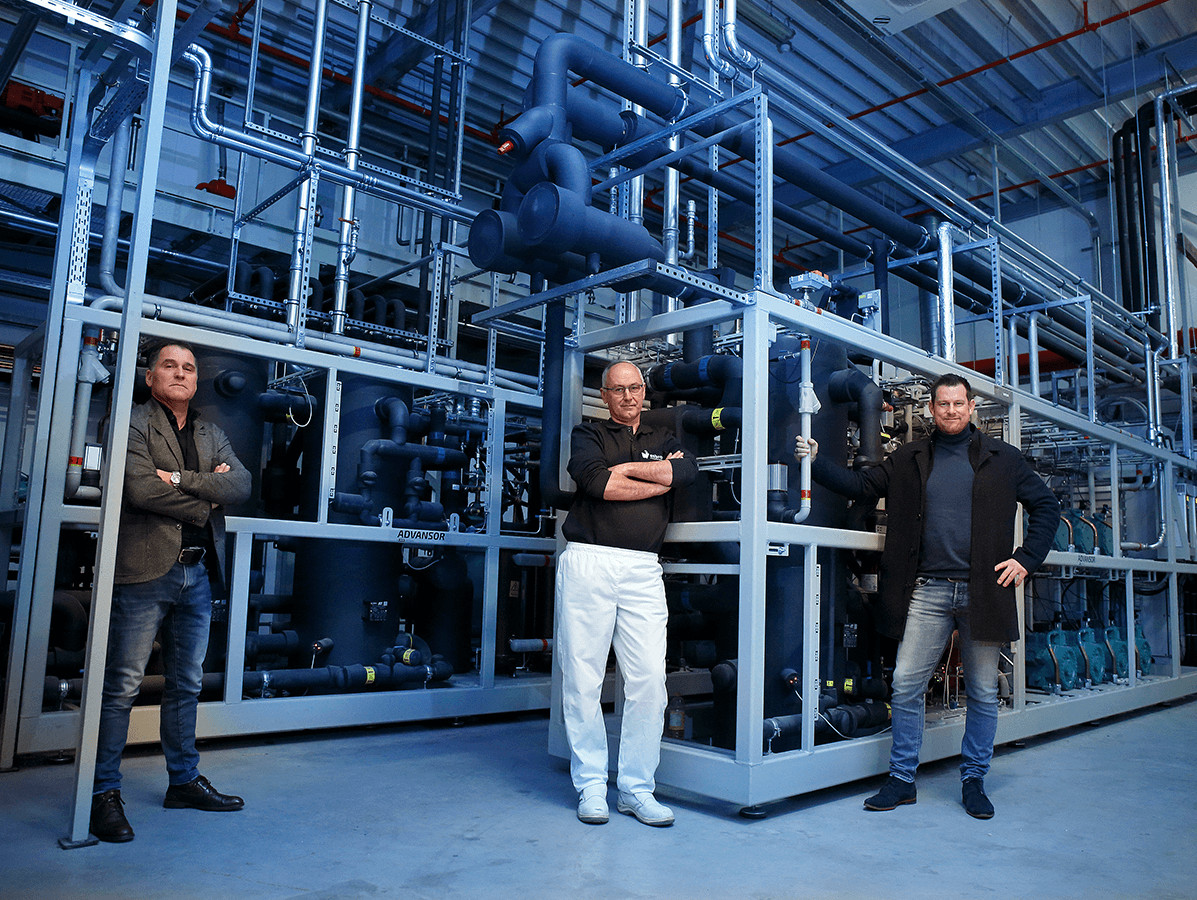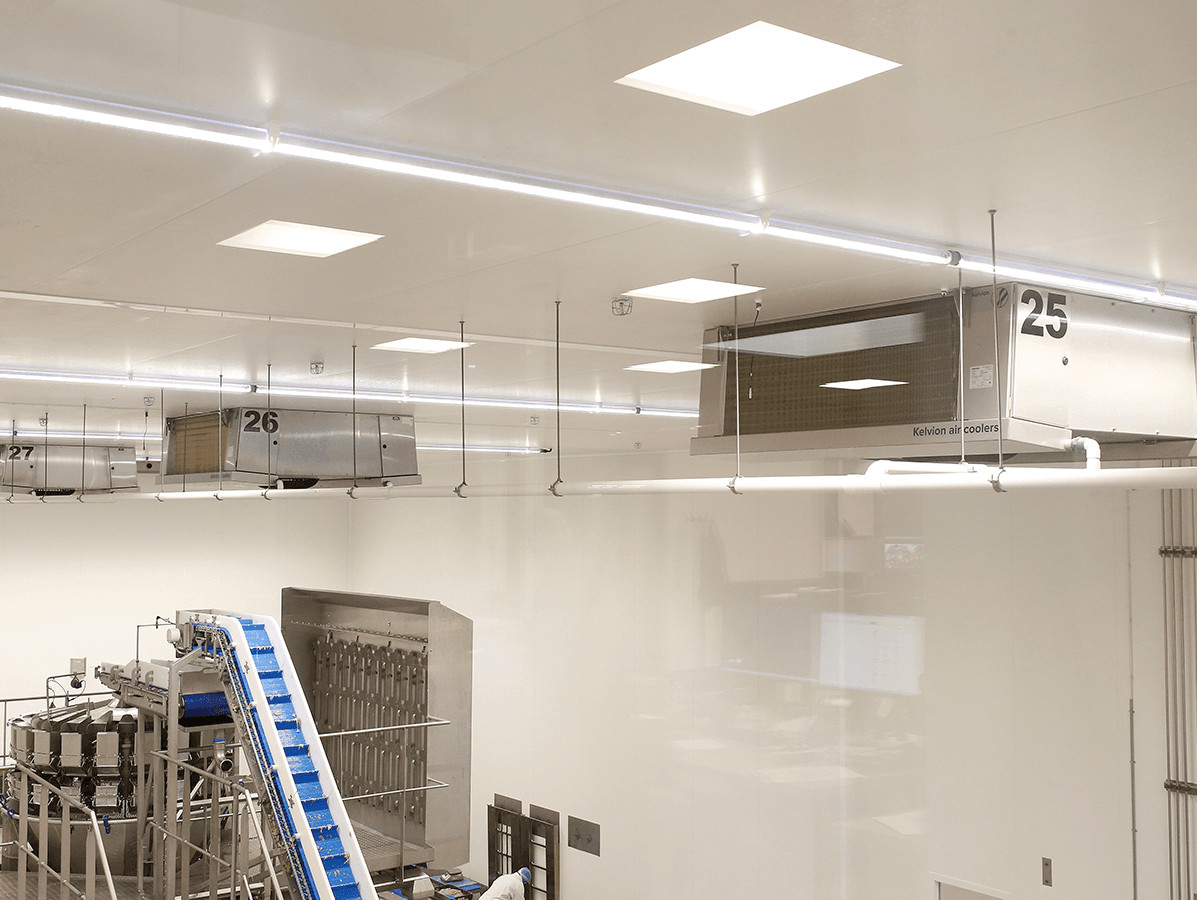
Innovation and quality are leading for Esbro, 'Brand new' is an important spearhead. Littel technical installations (Lti) from Lopik helps Esbro - with the latest technology in refrigeration - to take big steps towards sustainability.
When the family business Esbro started in 1964 in Doetinchem, it only processed frozen chicken. The company is now part of the GroenlandGroup, a subsidiary of the PHW Group. This German family business produces high-quality poultry specialities. Jan Legters, manager of the company in Wehl and responsible for the daily operations: "We operate completely independently, flexibly and autonomously. We work closely with GroenlandKip in Bodegraven, also part of the GroenlandGroup and a specialist in concepting, packaging and distribution."
In 2021, a substantial expansion of the processing and packaging department was realised. That was the beginning of the collaboration with refrigeration company Littel technische installaties (Lti). Lti exists for 27 years and works mainly for food processing companies, many of which have continuous processes. Sustainability is one of the reasons why Esbro works with Lti. Over the past ten years, the company has gained a lot of experience in cooling, freezing and deep-freezing with environmentally friendly natural refrigerants. Jan Legters maintains close contact with owners Wim Littel and Joost van Moolenbroek, respectively general and technical directors. Reliability of the installations, flexibility and good contact with the installers are of great importance to Esbro. Jan Legters: "We want to be able to make adjustments at any time.
In the meantime the expansion at Esbro continued, last year adding 5,500 m2. Twelve rooms were built for deboning, cutting, seasoning and packaging chicken and chicken products. "Each room has to be cooled separately," says Jan Legters.
Halfway through the construction, a major fire broke out at GroenlandKip. "We had to partially change the construction schedule, so that we could pick up production and distribution from Wehl. Within three days, we were able to deliver to retail again thanks to the cooperation of several parties. I am proud of how we managed to do that as a team in no time. A strong example of teamwork." The setback took a particularly positive turn: "We got new refrigeration technology here that could not have been completed according to the original plan."

The transcritical CO2 refrigeration and freezing installation
The systems meet all the criteria of the Energy Investment Allowance 2021 (EIA). "Of the investment costs, 45.5 percent is deductible from the taxable profit; this provides a net benefit of about 11 percent," says Wim. "Mind you, industrial refrigeration is responsible for about 7 per cent of the total energy consumption in the Netherlands. These are 'hidden' numbers. People didn't even look at it before, but now you can benefit from it."
Jan Legters agrees: "We want to optimise energy consumption. Our branch is ideally suited for that purpose."
During the construction and renovation projects, Jan Legters has meetings with all kinds of disciplines. "An important point of attention for us is, besides guaranteeing food safety, reducing our footprint. We continue to invest in this. There are plenty of examples of the latter goal: For example, almost the entire building has LED lighting, the diesel forklift trucks will soon be replaced by electric ones, and solar panels will be installed on part of the new building. Fat from waste water is converted into biofuel. Emissions from the enormous air washer are at zero level. And heat recovery is another important aspect. Of course, cooling plays an essential role in guaranteeing food safety. It's nice that this aspect can also be made more sustainable.
During cooling and freezing, heat is extracted from products and spaces and used via heat exchangers to heat up cleaning water or used directly in the production process. Lti is partly responsible for this. Joost explains: In the machine room of the new building, the compressors of the two cooling/freezing units are running. Both installations are equipped with the environmentally friendly natural refrigerant CO2. The central refrigeration system cools all the rooms in the new building to just before freezing. Chicken is cooled down to 1 °C immediately after slaughter. With the (shock) freezing installation, Esbro can freeze over fifty thousand kilos of product very quickly, and then store it directly in the freezer storage cell."
Main photo: from left to right: Wim Littel, Jan Legters and Joost van Moolenbroek
Photos: ©Henk Riswick fotografie
Source: Vakblad Voedingsindustrie 2022